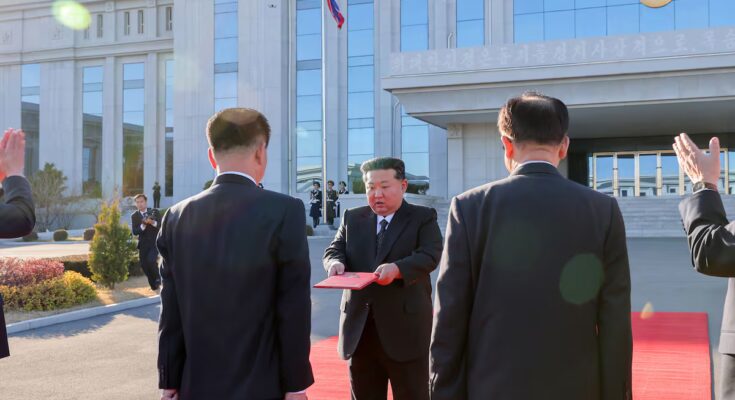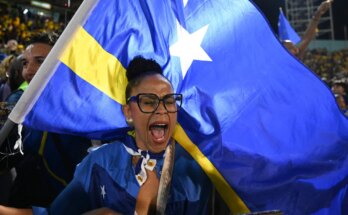North Korea’s leader, Kim Jong-un, visited the Ministry of State Security, the body tasked with identifying and neutralizing domestic dissidents, for the first time in 13 years. The act is interpreted as a possible signal that the marshal will continue to tighten social control measures in his country.
Kim made the visit on Tuesday “to mark the 80th anniversary of the founding of the state security organ,” state news agency KCNA reported on Wednesday. This ministry is considered the main agency responsible for identifying political threats, monitoring the population and eliminating any activity that could jeopardize the stability of the regime. KCNA described it as “a strong fortress” to defend the socialist system and the people. And he noted that it firmly protects and guarantees the ruling party’s line and policy, North Korea’s sovereignty and “the political stability of society.”
This is Kim’s first visit to the organization since 2012, after having effectively assumed power in December of the previous year, following the death of his father and predecessor, Kim Jong-il. The North Korean marshal described the corps as “a reliable companion and a trusted assistant of the Party.” On the same day, Kim also visited the Ministry of Public Security, the Supreme Court and the Supreme Prosecutor’s Office, all pillars of the state’s internal control, which he also congratulated on their eighty years of existence.
The unusual visit takes place in a context of increasing repression, in which censorship has been strengthened, harsher punishments have been introduced for the consumption of foreign content and public executions have even been resorted to. Control over young people has also been strengthened.
North Korean defectors reported at recent forums in Seoul that domestic repression in North Korea has intensified following the Covid-19 pandemic and the enactment of three key laws: the Law on the Rejection of Reactionary Ideology and Culture (2020), the Youth Education Guarantee Law (2021), and the Pyongyang Cultural Language Protection Law (2023).



